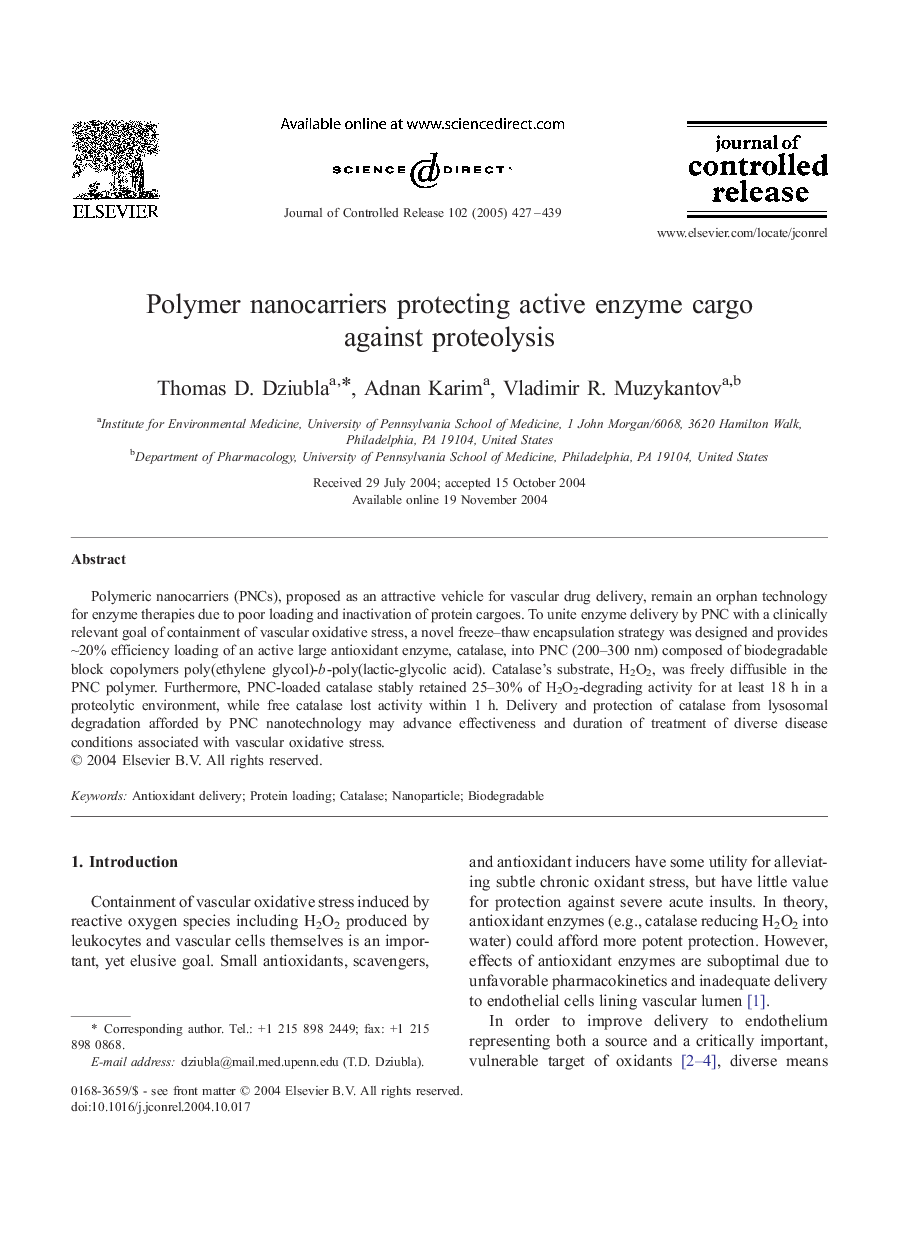| Article ID | Journal | Published Year | Pages | File Type |
|---|---|---|---|---|
| 10613613 | Journal of Controlled Release | 2005 | 13 Pages |
Abstract
Polymeric nanocarriers (PNCs), proposed as an attractive vehicle for vascular drug delivery, remain an orphan technology for enzyme therapies due to poor loading and inactivation of protein cargoes. To unite enzyme delivery by PNC with a clinically relevant goal of containment of vascular oxidative stress, a novel freeze-thaw encapsulation strategy was designed and provides â¼20% efficiency loading of an active large antioxidant enzyme, catalase, into PNC (200-300 nm) composed of biodegradable block copolymers poly(ethylene glycol)-b-poly(lactic-glycolic acid). Catalase's substrate, H2O2, was freely diffusible in the PNC polymer. Furthermore, PNC-loaded catalase stably retained 25-30% of H2O2-degrading activity for at least 18 h in a proteolytic environment, while free catalase lost activity within 1 h. Delivery and protection of catalase from lysosomal degradation afforded by PNC nanotechnology may advance effectiveness and duration of treatment of diverse disease conditions associated with vascular oxidative stress.
Related Topics
Physical Sciences and Engineering
Materials Science
Biomaterials
Authors
Thomas D. Dziubla, Adnan Karim, Vladimir R. Muzykantov,
